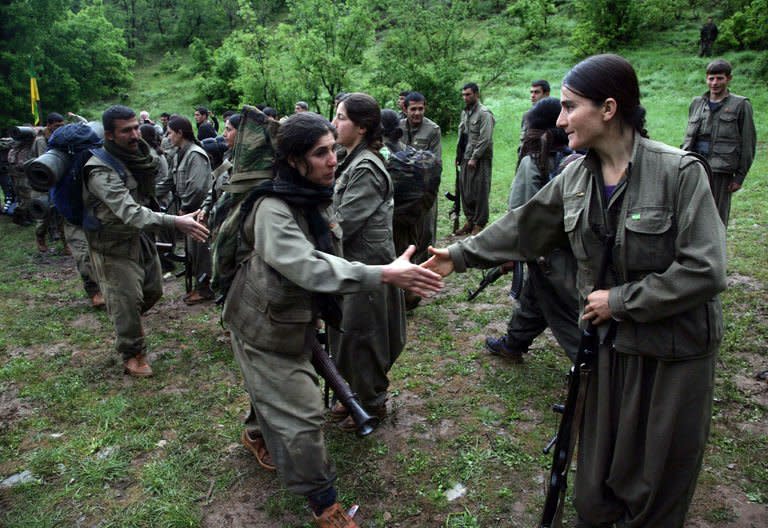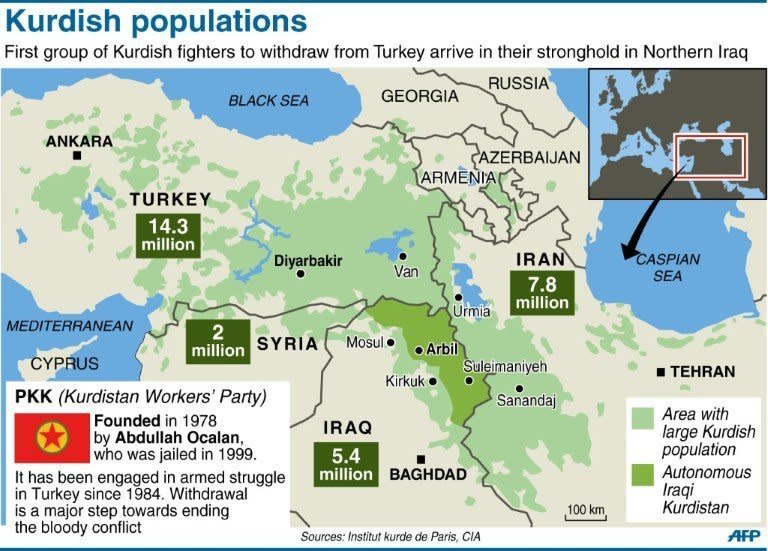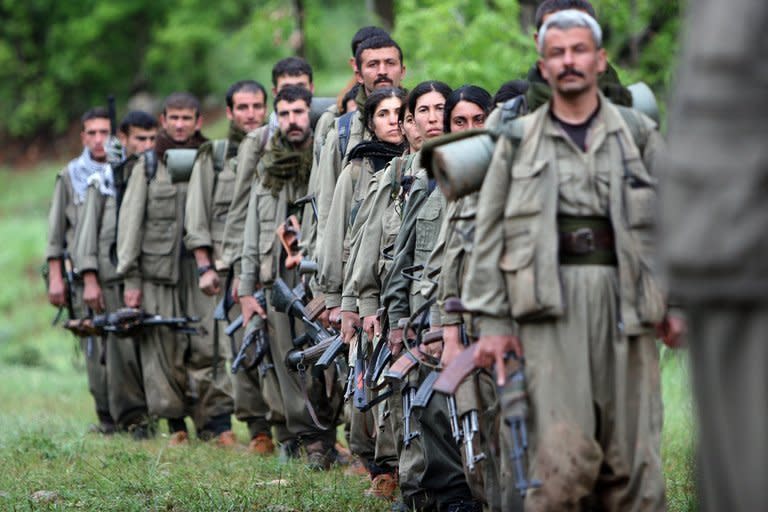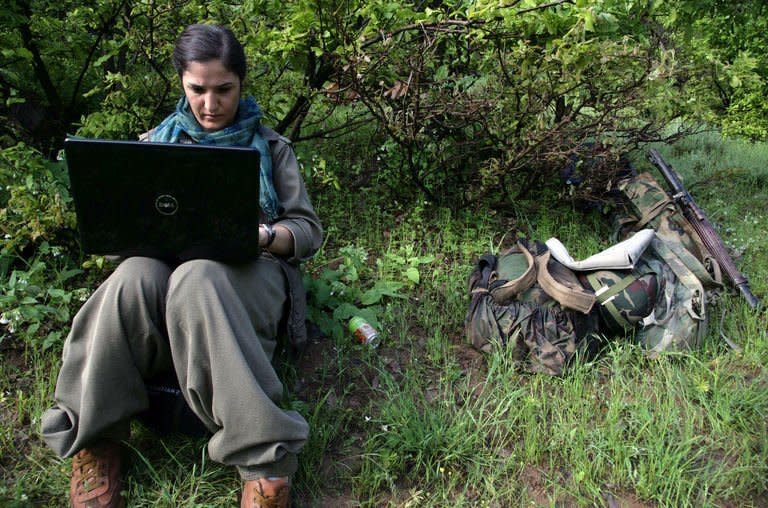First Kurd rebels reach Iraq under Turkey truce
A first group of Kurdish fighters pulling out of Turkey under a truce arrived in the autonomous Kurdish region of Iraq on Tuesday to handshakes and embraces after a gruelling week-long journey. But the Iraqi government slammed the movement of Kurdistan Workers' Party (PKK) fighters into its territory as a "flagrant violation" of its sovereignty and said it would complain to the UN Security Council. "We are the first group to reach the safe area in Iraq," said Jagar, leader of the group of PKK fighters that comprised nine men and six women. The fighters, who arrived in the Harur area of Iraq's autonomous Kurdistan region at about 6:00 am (0300 GMT), were armed with Kalashnikov assault rifles, light machineguns and rocket-propelled grenade launchers. They were greeted by Iraq-based PKK members who embraced them and shook their hands. After the welcome, the apparently exhausted fighters put down their weapons and warmed themselves at a fire. "Our withdrawal came in response to orders from the leader (Abdullah) Ocalan, as we want to open a way for peace through this withdrawal," Jagar said, referring to the PKK chief held by Turkey since 1999. "We faced many difficulties because of rain and snow" during seven days on the road, he said, adding that their movements had been monitored by Turkish aircraft. "We were getting ready to start a big fight with Turkey, but we responded to the call of our leader Ocalan and withdrew," said Midiya Afreen, one of the group. "This is a new phase," she said. "This is the phase of peace." The PKK took up arms for Kurdish self-rule in southeastern Turkey in 1984, sparking a conflict in which some 45,000 people have died. But it is now withdrawing its fighters as part of a push for peace with the Turkish authorities. The roughly 2,000 fighters in Turkey are leaving on foot, travelling through the rugged border zone to reach safe havens in Iraq's autonomous Kurdistan region, where they will join thousands of fighters already present in rear bases. Turkish Prime Minister Recep Tayyip Erdogan has repeatedly vowed that retreating rebels "will not be touched," and said that "laying down weapons" should be the top priority for the PKK. The PKK, however, is demanding wider constitutional rights for Turkey's Kurds, who make up around 20 percent of the 75 million population, before disarming. "We will continue to organise and train, and we are waiting for the Turkish government to take the necessary steps for peace," said Rohat, an Iraq-based PKK commander, who was in Harur on Tuesday. These steps include "making amendments to the Turkish constitution and recognising the national rights of the Kurdish people," he said. Over the years, the PKK has scaled back its original demand for outright secession to a call for autonomy and cultural and language rights for Turkey's Kurdish minority. A permanent peace could transform Turkey's Kurdish-majority southeast, where living standards have lagged far behind the rest of the country because of a lack of investment in the face of the violence. While the withdrawal is a positive move for the peace process, some Iraqi Kurds living near the border are still wary of a return to violence that has forced some to abandon their farms and also resulted in civilian deaths. And the Iraqi government sharply criticised the movement of more PKK fighters onto its soil. "The Iraqi government confirms its rejection of the withdrawal and the presence of armed men of the Kurdistan Workers' Party inside Iraqi territory, which is a flagrant violation of Iraq's sovereignty and independence," a statement from the cabinet said. The move "causes severe damage to neighbourly relations between the two countries and their common interests," it added. Iraq plans to complain to the UN Security Council, asking it to "take the necessary decision to prevent the violation of Iraq's sovereignty." But security forces under the command of the autonomous Kurdish region, not the federal government in Baghdad, man Iraq's border with Turkey and ultimately decide who enters the region.





